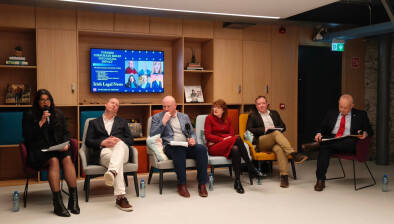How Mediation Can Fast-track Your Legal Career

Abraham Lincoln said a good settlement is better than a good lawsuit, and if you are a solicitor or barrister you’ll know that you are obliged to to try to pursue the former, and only resort to the latter if settlement can’t be reached.
But why leave it at that?
Here are three reasons why solicitors and barristers are undertaking training in commercial mediation.
1. To de-risk their legal careers
Even if ChatGPT doesn’t take your job, technology is changing the delivery of legal services and this trend will continue.
Lawyers are upskilling in areas that technology can’t take over, such as mediation, negotiation and problem-solving. And research has found that commercial clients show a preference for mediators who are also lawyers. This has been found in successive CEDR Mediation Audits, including the most recent one in 2021. A diversified practice focused on human, as well as legal skills, will have the best chance of benefiting from the coming changes.
2. To be a better lawyer
Training in mediation is life and career changing. So say those who have done so. Mastering mediation skills will make you a better lawyer. You will learn new ways to interact with clients, colleagues and adversaries and can offer your clients a better service.
You’ll know how to manage the process and ensure clients don’t end up with an agreement that results in a costly Court of Appeal case (see for example, the complex case of Kennedy & O’Riordan v Ward [2022] IECA 221 which arose out of a mediation). It is easy to underestimate the impact a skilled lawyer can have on a mediation. Conversely, research correlates poorly skilled lawyers to poor outcomes and failed mediation processes.
3. Because, well, you have to
The law in Ireland makes it clear that mediation should be considered in all but the most exceptional civil and commercial disputes.
Bringing a client’s case all the way to the High Court and having Mr. Justice Barniville say it should have gone to mediation is not a great outcome (as, for example, in the Clerys case).
Mediation law is getting more complex. Courts are dealing with a range of questions that lawyers need to be alert to and able to advise on (see, for example, discussions on mediation and delay in Campbell v Exec. of Ahern, deceased [2022] IEHC 241).
These are all challenges but bring enormous opportunities for solicitors and barristers who are ready to expand their skills, knowledge and practice.
If you want to
- Add a new and growing service to your practice
- Help your clients negotiate better outcomes
- Keep on the right side of Justice Barniville
Then book your place onto our February Commercial Mediation Training Programme now. Only 8 seats available.









